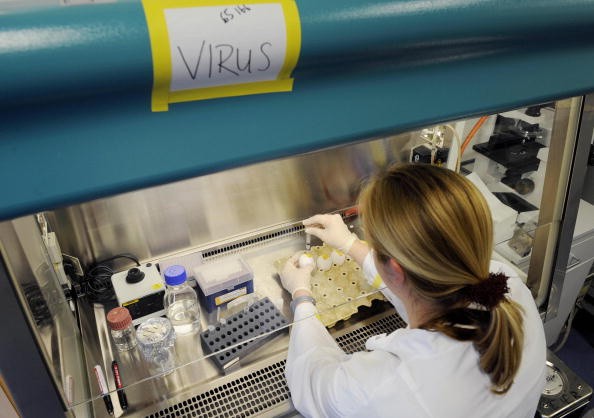The Marburg virus has made its presence felt in the West African country of Guinea after a man who tested positive for the disease it causes passed away.
Authorities are now trying to identify those who have come in contact with him.
The Marburg virus disease comes from the same family of viruses as the one that causes Ebola.
Marburg Virus Disease Detected in Guinea

The Marburg virus, which causes the Marburg Virus Disease, has been detected in Guinea after a man who tested positive passed away.
According to a report by BBC, the case was detected in the region of Guéckédou. It is the same region that experienced a recently-concluded Ebola outbreak.
The World Health Organization (WHO) said that the Marburg virus has to be "stopped in tracks," according to the BBC. WHO Africa Director Dr. Matshidiso Moeti has already warned that the disease can spread if not controlled.
What is the Marburg Virus Disease?
According to the WHO, the Marburg Virus Disease, which was formerly known as the Marburg hemorrhagic fever, is "a severe, often fatal disease in humans."
The disease was first discovered when simultaneous outbreaks occurred in Marburg and Frankfurt in Germany and in Belgrade, Serbia in 1967. Average case fatality rate for the Marburg Virus Disease is at 50%.
The virus that causes the disease is "clinically similar" to the Ebola virus, per WHO. Both viruses come from the same family of viruses, the Filoviridae family (filovirus).
The Marburg Virus Disease's former name is due to the fact that the virus can cause severe hemorrhagic fever.
According to the report by the BBC, the Marburg Virus Disease "is transmitted to people from fruit bats and spreads between humans through the transmission of bodily fluids." Incubation period could be from two days up to 21 days. People are infectious as long as the virus remains in their blood.
Symptoms of the disease include high fever, severe malaise, muscle aches and pains, and severe headache. Other symptoms that can be eventually experienced by those infected with the virus include abdominal pain and cramping, vomiting, and nausea.
Related Article: New Ebola Virus On The Rise: Marburg Virus Kills 3 In Uganda
Vaccine or Treatment for Marburg Virus Disease
Unfortunately, there is no vaccine or antiviral treatment for the Marburg virus yet, according to WHO. Treating specific symptoms, however, improves the chances of survival of the patient infected with the virus.
According to the report by the BBC, doctors have said that drinking plenty of water likewise improves the chances of patient survival.
With the coronavirus pandemic still raging on, the last thing health experts need is another outbreak or even another pandemic in their hands. This highlights the need and importance of controlling the Marburg virus.
Case management, contact tracing, good laboratory service, and safe, dignified burials are seen by WHO as interventions that can be put in place against the spread of the Marburg virus disease.
Also Read: Experimental drug for Ebola cousin holds promise
This article is owned by Tech Times
Written by Isabella James
ⓒ 2025 TECHTIMES.com All rights reserved. Do not reproduce without permission.




